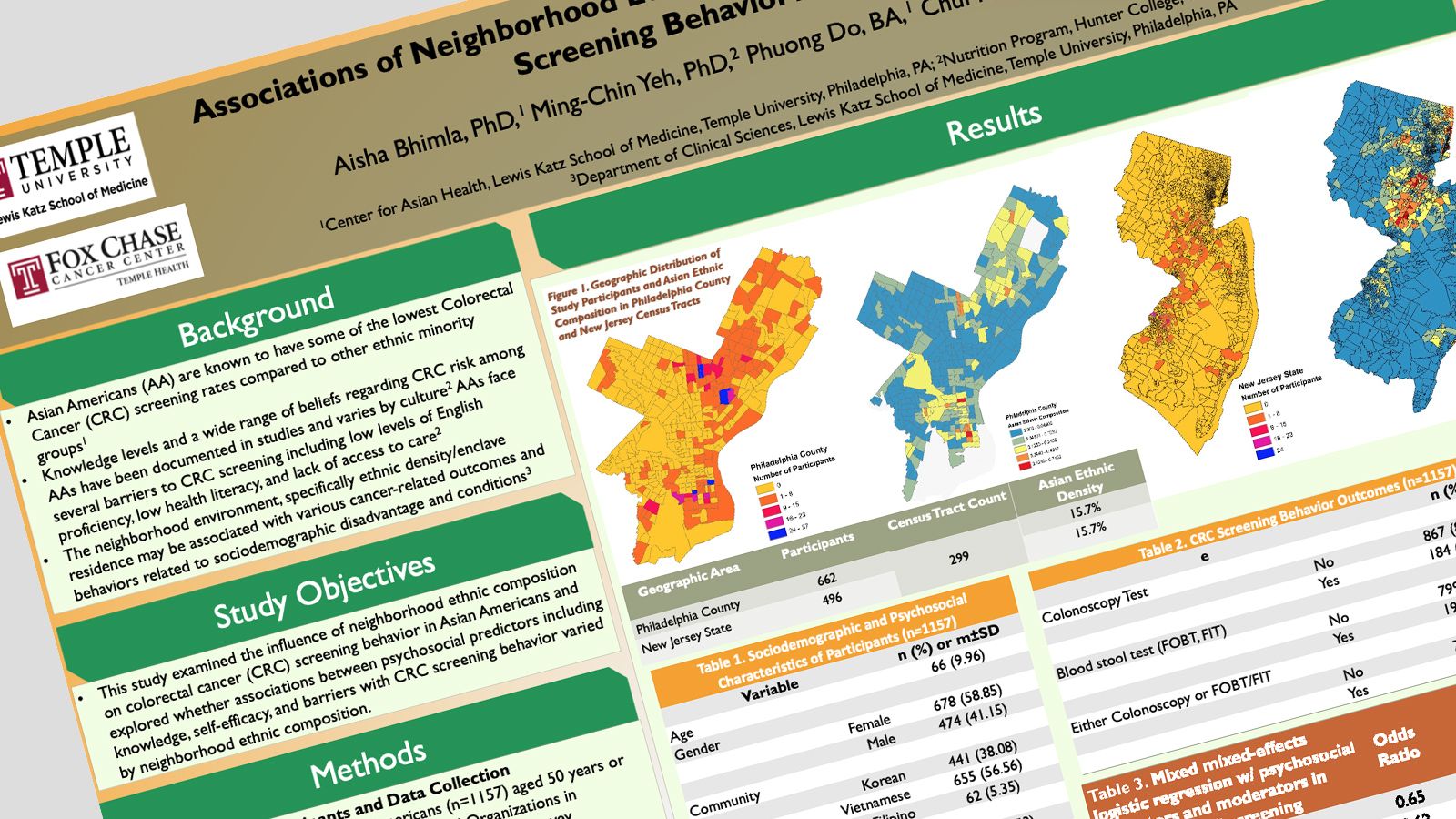
Associations of Neighborhood Ethnic Density and Psychosocial Factors With Colorectal Cancer Screening Behavior Among Asian American Adults
| Name | Aisha Bhimla |
| Institution | Temple University |
| Research Field | Population Cancer Research |
| Role at Institution | Post-Doctoral Fellow |
| Presenter(s) | Aisha Bhimla |
